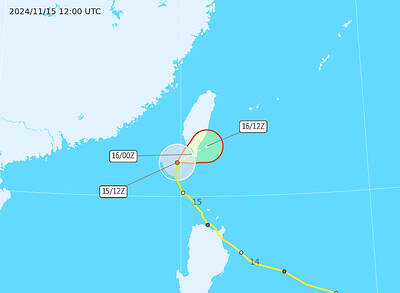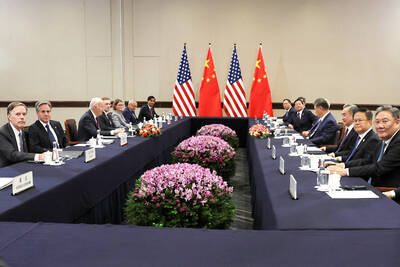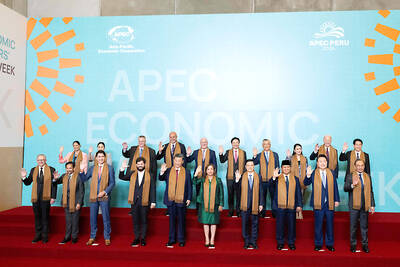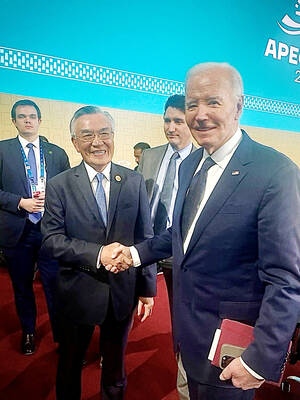The government is planning to give out cash to all citizens using a portion of the surplus national tax revenue, Premier Su Tseng-chang (蘇貞昌) said yesterday, provided that the policy has a legal basis and is approved by the legislature.
Su made the remarks during a visit to Chunghwa Post’s Taipei Mail Processing Center yesterday morning.
President Tsai Ing-wen (蔡英文) also confirmed the announcement yesterday evening, despite saying in her New Year’s Day address that the government “would consider sharing excess tax revenue with all citizens only when it is within our fiscal capacity to do so.”

Photo: CNA
The nation last year collected a surplus of NT$450 billion (US$14.66 billion) in national tax revenue, of which NT$70 billion is designated to be used to fund local governments, Su said.
The president on Sunday said that the remaining surplus would mainly be used for three different purposes, he said.
First, NT$100 billion is to be allocated to electricity price subsidies and closing the financial gap in the Labor Insurance and National Health Insurance funds, Su said.
Another NT$100 billion is to be used to fund a series of government initiatives to bolster the nation’s economic resilience, Su said, adding that the remaining NT$180 billion would be shared with the public after a portion of the fund is reserved to cover emergency expenses.
“We are planning to give cash to people within a certain quota. However, to implement such a policy, we must have a legal basis and propose a budget, which must be approved by the legislature,” Su said.
Cabinet officials on Monday began planning how the surplus tax revenue could be shared among the public, he said.
“We want people across the nation to share the fruits of economic growth, but we must also set aside a portion of the surplus to enable us to cope with global challenges brought by rising COVID-19 cases in China and inflation caused by the war between Russia and Ukraine. We cannot give it all away,” he said.
Chinese Nationalist Party (KMT) Cultural and Communications Committee director Hung Meng-kai (洪孟楷) said that the Executive Yuan should announce details of the policy this week and ensure that each person receives the cash before the Lunar New Year holiday, which begins on Jan. 20.
The government should also launch a comprehensive review of the tax system after the holiday, he said.
Hung questioned Su’s motive for announcing the policy yesterday, after many people were disappointed by Tsai’s remarks on Sunday.
“Did he thoroughly consider the policy before announcing it to the public, or was he simply throwing out ideas after experiencing too much pressure from politicians and the public?” Hung asked.
KMT caucus whip Tseng Ming-chung (曾銘宗) also said it would be “best” for the government to issue the cash payment before the Lunar New Year holiday.
To achieve that goal, the legislature should hold a provisional session after the regular one ends on Friday next week to discuss the matter, he told a news conference.
In response, Democratic Progressive Party Legislator Kuo Kuo-wen (郭國文) said that even if lawmakers approved a bill in a provisional session, it would be unlikely that the payments could be made ahead of the holiday.
Additional reporting by CNA

Typhoon Usagi yesterday had weakened into a tropical storm, but a land warning issued by the Central Weather Administration (CWA) was still in effect in four areas in southern Taiwan. As of 5pm yesterday, Tropical Storm Usagi was over waters 120km south-southwest of Oluanpi (鵝鑾鼻), the southernmost tip of Taiwan proper, and was moving north at 9kph, CWA data showed. The storm was expected to veer northeast later yesterday. It had maximum sustained winds of 101kph, with gusts of up to 126kph, the data showed. The CWA urged residents of Kaohsiung, Pingtung County, Taitung County and the Hengchun Peninsula (恆春) to remain alert to

ONE LAST TALK: While Xi said that Taiwan was a ‘red line,’ Biden, in what is likely his last meeting with Xi as president, called for an end to China’s military activity around Taiwan China’s military intimidation and economic coercion against Taiwan are the main causes of tensions that are destabilizing peace in the Taiwan Strait, Taipei said yesterday while thanking US President Joe Biden for expressing Washington’s firm stance of maintaining peace and stability in the region. Biden and Chinese President Xi Jinping (習近平) met on Saturday for their third meeting and their first talks in seven months on the sidelines of the APEC forum in Lima, Peru. It was likely Biden’s last meeting as president with Xi. During their conversation, Biden reiterated the US’ opposition to any unilateral change to the “status quo” from either

Taiwan would participate in the 2026 APEC summit to be hosted by China after Beijing promised it would ensure the personal safety of attendees, Taiwanese national security sources said yesterday. The APEC Leaders’ Machu Picchu Declaration announced yesterday said that China would host the APEC summit in 2026. Beijing proposed hosting the summit shortly before this year’s gathering began on Friday, a national security official said, speaking on condition of anonymity. Many APEC members expressed concerns about China hosting the event and said that prior communication over the decision was insufficient, the official said. Taiwan brought up concerns about legal “guidelines” China announced in

MEET AND GREET: The White House, which called the interaction ‘just a handshake,’ did not immediately respond to a request for comment on whether Biden planned to visit Taiwan’s envoy to the APEC summit, Lin Hsin-i (林信義), on Friday invited US President Joe Biden to visit Taiwan. During the APEC Leaders’ Informal Dialogue, Lin, who represented President William Lai (賴清德) at the summit, spoke with Biden and expressed gratitude to the outgoing US president for his contribution to improving bilateral ties between Taipei and Washington over the past four years, the Ministry of Foreign Affairs said. Lin and Biden exchanged views during the conversation, with Lin extending an invitation to Biden to visit Taiwan, it said. Biden is to step down in January next year, when US president-elect Donald Trump is